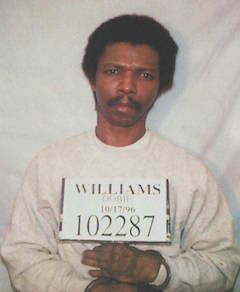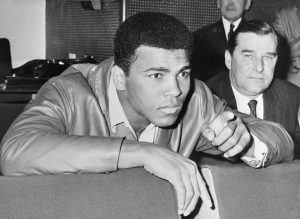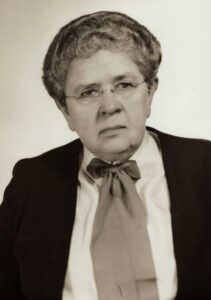Throughout the history of the United States, there have been tens of thousands of murders, rapes, and other heinous crimes. For over two-hundred years, the United States government intended to establish a fair and judicial system of justice. However, as countless cases of accused criminals have shown, our judicial system is not all that equal. As cases from the past prove, there have been instances where errors in the judicial system occur, resulting in unfair trials. Even worse, some of those inmates who have had unfair trials were convicted and in some cases, even sentenced to death row. So, is our judicial system all that just for all? In many cases it is just; however, in too many cases throughout our history, the system has been unfair to a number of accused individuals. An example of this is the trial of Dobie Williams, a young black man accused of the murder of a middle-aged white woman, Sonja Knippers on July 8, 1984. Dobie Williams had an unfair trial due to his race, few accommodations for his mental health, and an inept court-appointed attorney that he was provided.

Geography and race had a role to play in the unfair trial of Dobie Williams. Knippers was a white woman in her early forties, who was brutally killed in the bathroom of her southern home, located in Many, a small town in Lousiana, which was not a good place for Dobie, an African American, to be accused of murdering a white woman. Sister Hellen Prejean, a writer and a spirtual adviser for death row inmates, who accompanied Dobie throughout his trials and execution dates, explains that Dobie never had a fair trial due to being assigned an all-white jury during his hearing for the murder of Knippers; in addition, all of the judges, district attorneys, and the local media during the time were all white, further explaining possible prejudices that could stacked the odds against him. Many is a small town located in north central Louisiana, and it was not a city. It was a small, quiet, and mostly white town, where murder, or basically any other crime, was erratically unusual, especially in 1984, meaning that when crimes did happen, it was a huge deal. Consequentially, being a black individual accused of murdering a middle-aged white woman in a small town in the south was a bad situation to be in. We will never know for sure whether an all-white jury had anything to do with the conviction of Dobie Williams. But it still was not looking good for him, due to where the murder had taken place and the significance of the crime. In her book, Prejean, realizing the social injustices in Louisiana during the 1980’s, exclaimed that Dobie was, “in big trouble.”1 Prejean understood how geography had a role to play in the conviction of Dobie. Innocent or guilty, being a black minority during the time of Dobie’s trial in a small town located in the heart of the south was no easy thing to endure.

There are similar cases to Dobie’s in which a fair trial was not given because of such geography. In 1982 in Greenwood South Carolina, race played a significant role in the conviction of twenty-three-year-old Edward Lee Elmore, who was accused of the rape and murder of seventy-five-year-old Dorothy Edwards. According to Bishop Emmanuel Spearman, who was pastor to Edward, race played a major role in the trial.2 Spearman made a plausible statement about the trial because Edward, the African American, was accused of the murder of an elderly white woman in 1982, which was a severe offense. This could have given him an unfair trial due to the murder taking place in a small town in Greenwood, South Carolina, where just like Many, murder was rare. Something as significant as both murder and rape of an elderly white woman in a small, southern town would be considered heinous.
Dobie Williams did not have well-suited accommodations. In the 1980’s, individuals such as Dobie who had an IQ below 70, did not yet have the defense based on the Supreme Court case, Atkins v. Virginia, which ruled that capital punishment is unconstitutional for defendants with mental retardation.3 This meant that below average IQ could not be used in defense of Dobie Williams until the Supreme Court case was actually ruled. This can be related to Edward Lee Elmore, who had an IQ below 70, which made it difficult for him to understand the questions that were being asked while defending himself in a courtroom, when he was asked questions by district attorney, William T. Jones, who said, “You want this courtroom to believe you’re this quiet don’t you?”4 Edward lacked the competence to understand how to effectively defend himself while being asked harsh questions, due to being mentally handicapped. Furthermore, according to Celia B. Fisher, studies have demonstrated that “contribution to legal decisions concerning competency and predictions of future violence places the defendant at the mercy of an imperfect and unjust system.”5 The study shows that a defendant’s mental status is critical in the fate of that individual who is being accused of a heinous crime. Dobie Williams was a mentally-handicapped individual on trial for a severe act, and who was unable to properly defend himself, thus resulting in him to be at the mercy of a flawed judicial system.

Dobie Williams grew up in an impoverished childhood, giving him no other choice but to be assigned Michael Bonnette, his overworked public defender for his case, who had limited experience in death penalty cases, giving him an unfair trial. Sister Helen Prejean exclaims, “They know the difference in treatment given the O.J’s of the world in contrast with the NoJ.’s, forced to accept overworked, underfunded, or inept attorneys to defend them.” The fact of an incompetent, overworked, and underpaid attorney being assigned to Dobie, resulted in him making mistakes that affected the whole trial. During his trial, Dobie’s overworked public defender failed to successfully acquire any independent forensic testing, resulting in him being unable to provide a proper counter to the prosecutor’s claim against him. This mistake allowed for the argument against Dobie to be uncontested for thirteen years. Furthermore, it was Dobie’s financial situation that not only affected his opportunity to be assigned a more effective private attorney, but it also prevented him from having certain tests performed that could have aided him during his trial.6
There are other cases that explain the error of our judicial system. The trial of Dobie Williams is just one case out of too many that has been unfair. According to Sister Helen Prejean, there have been numerous cases of inaccuracy by the state and federal courts, thus compelling them to free 117 innocent death row inmates since 1973.7 Prejean presents the dramatic statistic in her book, The Death of Innocents, which was published in 2004. Imagine what the number has been now since the book was published. In addition, in 2000, Illinois’s governor, George Ryan, proclaimed a moratorium for the death penalty of the state, confirming that 13 death row inmates have been exonerated in the past 23 years.8 The appalling statistics illustrate the probable flaw in the judicial system of the United States, making it more likely to believe that Dobie Williams had an unfair trial.
Minorities in southern areas who are accused and convicted of a crime are more highly exposed to unfair trials compared to other individuals. Even though the right to a public attorney is granted with the intention of an equal judicial system, in reality, that is just not the case. Dobie Williams could not afford a private attorney who had experience with the death penalty, resulting in him being unable to receive the proper defense that he deserved due to the inept, overworked, and underpaid public defender that he received. Dobie was unable to defend himself due to his below 70 IQ. With all of the facts in place, was the judicial system in the case of Dobie Williams all that just when there have been numerous accounts of accused inmates being exonerated due to a flaw in the system?
- Sister Helen Prejean, The Death of Innocents (New York: Random House, 2005), 19. ↵
- Life on Death Row, “Death Row Stories-Edward Lee Elmore,” 1:47-3:33, March 27, 2017, https://www.youtube.com/watch?v=aSCJkTPft5g&t=2s. ↵
- Celia Fisher, “Human Rights and Psychologists’ Involvement in Assessments Related to Death Penalty Cases,” Ethics and Behavior 23 no.1 (2013): 58. ↵
- Life on Death Row, “Death Row Stories-Edward Lee Elmore,”16:22 , March 27, 2017, https://www.youtube.com/watch?v=aSCJkTPft5g&t=2s. ↵
- Celia Fisher, “Human Rights and Psychologists’ Involvement in Assessments Related to Death Penalty Cases,” Ethics and Behavior 23 no.1 (2013): 60. ↵
- Sister Helen Prejean, The Death of Innocents (New York: Random House, 2005), 13-17. ↵
- Sister Helen Prejean, The Death of Innocents (New York: Random House, 2005), 17. ↵
- Robert Sigel, “Profile: Illinois Governor George Ryan has placed a moratorium on death penalty executions, citing the state’s shameful record of putting innocent people on death row,” NPR, January 31, 2000. ↵



74 comments
Didier Cadena
This was a very interesting article. Before reading the article, I had no idea who Dobbie Williams was, so it was great to read a little bit about him. It was to read about his case and the injustice that he faced in court. The article does a great job of putting all of the information together and still make it interesting to read.
Lyzette Flores
Reading this article made me really upset because Dobie Williams was treated really unfairly. It was really inequitable how he was offered an overworked, below played, and unexperienced attorney as well as being held in all white judge court. Till this day racism is still alive and I could only imagine how it was back then in the 80’s. I believe he would have had a better chance of explaining himself if the people in court would ask him adequate questions due to his IQ.
Tessa Bodukoglu
reading this article really put into perspective for me just what the justice system is really like. people in prison don’t get the proper attorneys to help represent themselves in court. its unfair of the justice system to not allow them access to a good attorney just because of race or even income. Race has played a big role in society back then and even now. Dobie didn’t get the chance to even prove himself as well as countless of other people being wrongfully accused.
Maxx Arizmendi
I find the case of Dobie Williams is very interesting. For one, the murder was basically a scenario in which he was at the wrong place at the wrong time. Also, Williams couldn’t really defend himself due to his mental status and not being appointed the proper attorney. Another thing is that this was an all-white jury and they really didn’t have any of it when deciding what would happen to Williams, due to him being an African-American. This case can be used as an example to show how the judiciary system here in America is flawed. This article was a very interesting and enjoyable read.
Sabrina Hsu
It’s really sad how many people have had unfair trials or were wrongfully accused because of their race, and it’s even more sad that some have been put to death because of this. What happened to Dobie is terrible but what is even worse is that he is just one of hundreds that this has happened to. This may have been almost 40 years ago but things like this still happen today. I hope one day I’ll be able to live in a world where racism is no longer present and we don’t have to worry about things like this happening anymore.
Mariah Garcia
This article reiterates the appalling and unjust nature of the judiciary system, especially in regards to its treatment and at times clear prejudice towards people of color. Living in a town such as San Antonio, it becomes easy to forget that for groups in other parts of the nation that this is a very real situation for them. The situations faced by Dobie William and Edward Lee Elmore bring to mind the treatment of the trial of George Stinney Jr., who was sentenced to death and executed for something that would later be revealed to have been untrue. I cannot help but think of the trials of Ted Bundy and Ed Gein, with Bundy having many accusers and a myriad of evidence against him that wasn’t considered in his trial, as well as the multitude of marriage proposals that Bundy received on death row. Frankly, this is appalling, yet the more upsetting fact is that this situation is not unfamiliar in this day and age.
Eric Ortega Rodriguez
This article was really informative on Dobie Williams’ story. The sad reality is that his case is definitely not the first nor last with an unfair trial. I found it really unfair that Dobie did not have any factors in his favor. It is bizarre that with an all-white jury and not being mentally able to defend himself, he was still was not provided the proper attorney, with death sentence experience, he was also not able to afford forensic testing. Which is unfair and sad. Even with his story, this is still a prevalent issue today, and something must be done to change it.
Belene Cuellar
So many people think our judicial is above racial profiles and an unfair trial due to the color of your skin, but the sad truth is that our justice system still needs improvement. It’s cases like these that make me question whether or not society has really changed. This article did a good job with providing the readers with more than one story where the judicial system targeted innocent men.
Michael Hinojosa
I can’t imagine how anyone would feel being false accused of a crime they didn’t commit. It’s even more disheartening to know that our judicial system isn’t even fair like we so parade it around to be. Never before have I known about this trial or what occurred during it as well so reading through this was quite the informative read. I sincerely hope that eventually we can reach the point to where our judicial system really does live up to the phrase: “Fair justice for all.”
Dylan Sanchez
This was such a sad read. To hear what happened to Dobbie made me disgusted. It’s crazy how even so long after slavery there are times where blacks are persecuted in the most extreme circumstances. I tried to imagine being in his place and it made me sad how not ONE person from the jury or even the audience felt about not persecuting him because of his skin. Truly a sad world with sad people.